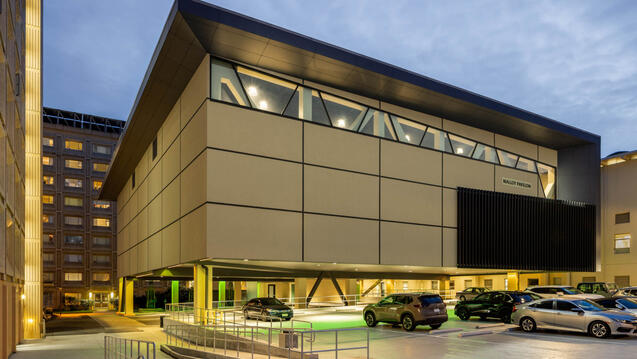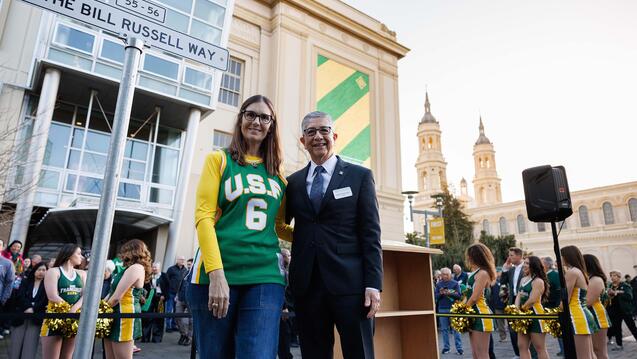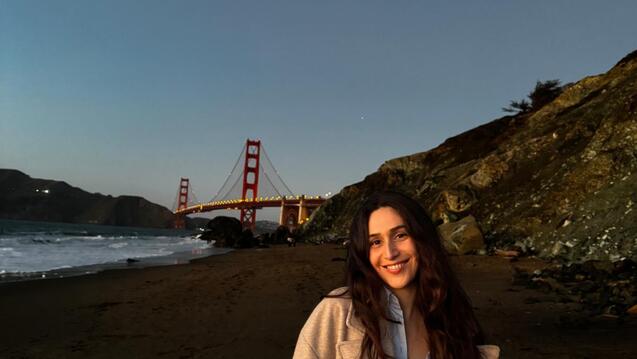A Letter from Dean Shabnam Koirala-Azad
This edition of the USF School of Education newsletter comes to you amidst a global pandemic that has paused life as usual, created huge disruptions, brought us together, and made visible our existing inequities, all at the same time. An unsettling combination of stillness and disruption, disintegration and integration. A moment that has made palpable ancient notions of cosmic dualities, the co-existence of destruction and construction, silence and noise, stillness and consternation, and everything in between.
At this same moment, the brutal murder of George Floyd, Breonna Taylor, and many others known and unknown to us, have clearly exposed the pre-existing and dangerous virus of anti-Black, white- supremacist ideologies, systems and habits that are embedded in the architecture of this nation.And as a result, many in our community, especially our Black-identified colleagues and peers, are experiencing additional pain, grief and exhaustion.
We are in difficult times. We are anxious. We are caring for children, trying to work, trying to study, trying to preserve health and well-being. We have family and friends who are vulnerable. We are separated from loved ones in other parts of the world. We feel isolated. We feel enveloped by uncertainty. The poet Rumi says, "whenever sorrow comes, be kind to it. For God has placed a pearl in sorrow's hand."
And so we realize that we are also in opportune times. We see joyfulness and hopefulness as radical acts in the midst of crisis. Even as we take care of those around us, we seek to expand the circle of support. We seek connections, and we act as connectors. We create ideas to serve those who are most vulnerable. We utilize the tools and resources at our disposal to support those most in need. We build community even in our physical separation. We continue to imagine ways in which we can advance justice through education, and we commit to it. In the words of author Toni Morrison, "there is no time for despair, no place for self-pity, no need for silence, no room for fear. We speak, we write, we do language. That is how civilizations heal.”
As a community, the School of Education is experiencing all of the above and we naturally vacillate between difficulty and opportunity in these uncertain times. Perhaps, behind so much of this disruption are signs of a humanity struggling to come of age. And perhaps if we listen to the silence we will hear the "breathing" of a new world as described by author Arundhati Roy--"Another world is not only possible, she is on her way. On a quiet day, I can hear her breathing”
Along that spectrum of hope and pain, we at the School of Education, are determined to see this journey through with renewed commitment to the work ahead. We are that community, which systematically strives to offer hope to those who long to see the betterment of the world. Writer, activist Audre Lorde reminds us that "revolution is not a one-time event" but a process that requires a steadfast approach to a vision of change that is unshakable, and vigilance that moves us to grab even the "smallest opportunity to make a genuine change." She adds that "the necessary ingredient needed to make the past work for the future is our energy in the present, metabolizing one into the other." Later on in her life, as she struggled with health challenges, Lorde offered this insight: "I found that battling despair does not mean closing my eyes to the enormity of the tasks effecting change, nor ignoring the strength and the barbarity of the forces aligned against us. It means teaching, surviving, fighting with the most important resource I have, myself, and taking joy in that battle."
It is in this spirit, that we present our newsletter with so many examples of our “fight” for justice. Doctoral students Gertrude Jenkins and Eghosa Obaizamomwan Hamilton exemplify constructive and creative resilience in crisis through the formation of a virtual school for youth, centering Blackness.And to continue generating and applying the type of knowledge and practices conducive to humanizing the communities we seek to serve, we are excited to announce the SOE Center for Humanizing Education and Research (C-HER). There are so many beautiful examples of active processes of creation and change in the USF School of Education, even in this difficult present. None of us expected or wanted this turn of events. The reasons why we work to advance justice through education transcend the timeline of this pandemic, regardless of the moment or the modes of engagement.
In solidarity and onward,
Shabnam Koirala-Azad
Dean, USF School of Education


